Expert Insights on IT and Careers

In today’s ever-evolving world of technology, staying informed and up-to-date is crucial for both IT professionals and those looking to build a successful career in this field. From the latest IT news and business technology developments to reviews of new software and tools, there is a constant stream of information to navigate. “Expert Insights on IT and Careers” provides a comprehensive resource for individuals seeking valuable insights and guidance in the IT industry. Whether you are an aspiring professional or an experienced IT expert, this article will provide you with key information and perspectives on IT trends, career opportunities, and the impact of technology on various industries. Stay tuned for expert advice and analysis that will help you navigate the ever-changing landscape of IT and make informed decisions for your career.

Expert Insights on IT and Careers
In today’s rapidly evolving digital landscape, information technology (IT) plays a critical role in driving businesses forward and creating new opportunities for career growth. As technology continues to advance and businesses increasingly rely on digital solutions, it is essential for professionals to stay updated on the latest trends, develop relevant skills, and navigate the job market effectively. In this comprehensive article, we will explore various aspects of IT and careers, provide expert insights, and offer valuable advice for IT professionals looking to advance their careers or enter the field.
IT News
Keeping up with the latest updates and developments in the IT industry is crucial for professionals who want to stay ahead of the curve and remain competitive in their careers. The IT landscape is constantly evolving, with new technologies, emerging trends, and industry insights shaping the direction of the field. By staying informed about the latest news and developments, IT professionals can gain valuable knowledge and insights that will help them make informed decisions and stay relevant in their roles.
From developments in computer science and technology to emerging technologies and innovations, IT news covers a wide range of topics that are of interest to IT professionals. Whether it’s industry analysis and insights or updates on the latest trends and technologies, IT news provides a valuable resource for professionals looking to stay updated and informed.

Trends in Business Technology
In today’s digital age, technology plays a critical role in shaping the way businesses operate and interact with their customers. From digital transformation to cloud computing and artificial intelligence, there are multiple trends in business technology that are driving innovation and changing the way organizations do business.
Digital transformation is a major trend in business technology, as companies across industries seek to leverage digital solutions to improve their operations, enhance customer experience, and drive growth. This involves adopting new technologies, processes, and business models that enable organizations to become more agile, customer-focused, and data-driven.
Cloud computing and software-as-a-service (SaaS) are also transforming the business landscape, as companies move their operations to the cloud and rely on cloud-based services for their IT infrastructure and software needs. This allows businesses to scale rapidly, reduce costs, and improve flexibility in their operations.
Artificial intelligence (AI) and machine learning are revolutionizing various aspects of business, from customer service and marketing to analytics and decision-making. By harnessing the power of AI, businesses can automate processes, gain deep insights from data, and deliver personalized experiences to their customers.
Big data and analytics are playing an increasingly important role in driving business growth and decision-making. By collecting and analyzing large volumes of data, organizations can uncover valuable insights, identify patterns and trends, and make data-driven decisions that lead to better outcomes.
Cybersecurity and data privacy are critical concerns for businesses in today’s digital landscape. With an increasing number of cyber threats and the growing amount of sensitive data being stored and transmitted, organizations need to invest in robust cybersecurity measures to protect their valuable assets and ensure compliance with data privacy regulations.
The Internet of Things (IoT) is another trend that is shaping the future of business technology. By connecting devices and objects to the internet, businesses can collect and analyze real-time data, automate processes, and create new opportunities for innovation and efficiency.
Blockchain and cryptocurrencies are revolutionizing industries such as finance and supply chain management by providing secure and transparent methods for recording and verifying transactions. This technology has the potential to disrupt traditional business models and create new opportunities for value creation.
Automation and robotic process automation (RPA) are transforming the way businesses operate by automating routine and repetitive tasks, freeing up employees to focus on more complex and strategic activities. This can lead to increased productivity, reduced costs, and improved efficiency.
Virtual reality (VR) and augmented reality (AR) are also gaining traction in the business world, offering new ways to engage customers, train employees, and enhance the overall user experience. With VR and AR technologies, businesses can create immersive and interactive experiences that drive customer engagement and loyalty.
These trends in business technology are shaping the future of the IT industry and creating new opportunities for professionals with the right skills and expertise. By staying updated on these trends and gaining relevant skills, IT professionals can position themselves for success in this rapidly evolving landscape.
Career Opportunities in IT
The growing reliance on technology across industries has created a high demand for IT professionals with the skills and expertise to develop, implement, and maintain digital solutions. From software development and data science to cybersecurity and network administration, there are numerous career opportunities in IT for individuals with the right skills and qualifications.
Software development is one of the most sought-after career paths in the IT industry. Software developers design, develop, and test computer software, applications, and systems. They are responsible for coding, debugging, and troubleshooting software to ensure its functionality and performance.
Data science and analysis is another rapidly growing field in IT. Data scientists use their expertise in statistics, programming, and data modeling to analyze complex data sets and derive insights that can drive business decisions. They work closely with stakeholders to understand their data needs and develop solutions that address specific business challenges.
Cybersecurity is a critical concern for businesses in today’s digital landscape. Cybersecurity professionals play a vital role in protecting sensitive data, systems, and networks from cyber threats. They develop and implement security measures, monitor for vulnerabilities and intrusions, and respond to security incidents.
Network administration and infrastructure is another important area of IT. Network administrators are responsible for the management, maintenance, and security of an organization’s computer networks. They ensure that networks are operating smoothly, troubleshoot any issues that arise, and implement network upgrades and improvements.
Cloud computing and DevOps are rapidly changing the way businesses deploy and manage their IT infrastructure. Professionals with expertise in cloud computing and DevOps are in high demand, as companies look to migrate their operations to the cloud and leverage DevOps practices to improve agility and efficiency.
IT project management is a critical role in ensuring the successful implementation of IT projects. IT project managers are responsible for planning, executing, and monitoring IT projects, ensuring that they are completed on time, within budget, and meet the specific objectives of the organization.
Database administration is another career path in IT that involves the design, implementation, and management of databases. Database administrators ensure the integrity, security, and performance of databases, and work closely with stakeholders to ensure that databases meet the needs of the organization.
UX/UI design is a field that focuses on creating user-friendly and visually appealing interfaces for software applications and websites. UX/UI designers conduct user research, develop wireframes and prototypes, and collaborate with developers to ensure that the final product meets the needs and expectations of users.
IT consulting offers a unique career path for IT professionals who enjoy working with different clients and industries. IT consultants provide expert advice and guidance to organizations on how to leverage technology to achieve their business objectives. They assess existing IT infrastructure, identify areas for improvement, and recommend solutions and strategies.
IT support and helpdesk roles are critical for ensuring that end users have the technical support they need to effectively use and troubleshoot IT systems and applications. IT support professionals provide assistance and troubleshooting services to end users, resolve technical issues, and escalate complex problems to higher-level support teams when necessary.
These are just a few examples of the diverse career opportunities available in the IT industry. As technology continues to advance and businesses increasingly rely on digital solutions, the demand for IT professionals will continue to grow. By identifying their interests and strengths, gaining the necessary skills and qualifications, and staying updated on industry trends, individuals can position themselves for success in the IT job market.

The Importance of IT Skills
In today’s technology-driven world, possessing relevant IT skills is crucial for professionals in various industries. Whether you’re considering a career in IT or looking to advance your existing IT career, having the right skills can make all the difference in your success. In this section, we will explore the importance of IT skills and the different types of skills that are in high demand in the IT industry.
In-Demand IT Skills
As technology continues to advance at a rapid pace, the demand for IT professionals with the right skills and expertise is growing. Employers are looking for candidates who possess a combination of technical and soft skills that align with their specific business needs. Here are some of the most in-demand IT skills that are sought after by employers:
Technical and Programming Skills
Technical skills are the foundation of a successful career in IT. These skills include proficiency in programming languages, databases, operating systems, and network administration. Employers value candidates who can demonstrate proficiency in languages such as Java, Python, C++, and SQL, as well as experience with popular operating systems like Windows, Linux, and macOS. Additionally, having knowledge of cloud platforms, such as Amazon Web Services (AWS) or Microsoft Azure, is highly desirable in today’s cloud-centered business environment.
Soft Skills for IT Professionals
While technical skills are essential, soft skills are equally important for IT professionals. Soft skills are personal attributes and abilities that enhance an individual’s interactions, job performance, and career prospects. Some of the most valuable soft skills for IT professionals include:
-
Communication and Collaboration: IT professionals need to effectively communicate technical concepts to both technical and non-technical stakeholders. Good communication skills help bridge the gap between technical and business teams and ensure that everybody is on the same page.
-
Critical Thinking and Problem Solving: IT professionals often encounter complex problems that require creative thinking and logical reasoning. The ability to analyze problems, think critically, and develop innovative solutions is highly valued by employers.
-
Adaptability and Continual Learning: In the constantly evolving field of IT, the ability to adapt to new technologies and learn new skills is crucial. IT professionals should demonstrate a willingness to learn, keep up with industry trends, and seek out professional development opportunities.
By developing a combination of technical and soft skills, IT professionals can position themselves as valuable assets to employers and increase their chances of career advancement.
Job Market for IT Professionals
The job market for IT professionals is highly dynamic and offers a wide range of opportunities for individuals with the right skills and qualifications. In this section, we will take a closer look at the current demand for IT professionals, salary trends, job growth, and potential job opportunities in specific industries.
Current Demand for IT Professionals
The increased reliance on technology across industries has created a strong demand for IT professionals. From software developers to cybersecurity analysts, employers are actively seeking candidates with the skills and expertise to fill critical IT roles. In particular, there is a high demand for professionals with expertise in areas such as cloud computing, data science, cybersecurity, and artificial intelligence.
Salary Trends and Competitiveness
IT professionals are known to earn competitive salaries, reflecting the demand for their skills and expertise. The salary range for IT positions can vary significantly depending on factors such as location, industry, experience level, and specific job role. Generally, IT professionals with specialized skills and experience can command higher salaries.
Job Growth and Opportunities
As technology continues to advance and become more ingrained in all aspects of business and society, the job growth for IT professionals is expected to be strong. The Bureau of Labor Statistics projects that employment in computer and information technology occupations will grow much faster than the average for all occupations, with an estimated growth rate of 11 percent from 2020 to 2030. This growth is driven by the increasing need for IT professionals to develop, implement, and maintain complex technology systems and networks.
Industry-Specific Job Market Analysis
While the demand for IT professionals spans across industries, certain sectors may offer unique opportunities and challenges. For example, the healthcare industry is experiencing a growing need for IT professionals who can develop and maintain electronic health records systems, ensure data security and privacy, and support telehealth initiatives. The finance industry relies heavily on IT professionals to manage complex financial systems, develop trading algorithms, and safeguard customer data. The e-commerce industry, on the other hand, requires IT professionals with expertise in website development, mobile apps, and online security.
Understanding the specific job market dynamics in different industries can help IT professionals strategically position themselves for success and identify industries that align with their interests and career goals.
Tips for Advancing Your IT Career
Advancing your IT career requires a combination of strategic planning, continuous learning, and professional development. In this section, we will share some valuable tips to help IT professionals take their careers to the next level and achieve their professional goals.
Continuing Education and Professional Development
Continuous learning is essential for IT professionals who want to stay updated on the latest technologies, trends, and best practices. Pursuing certifications, attending industry conferences and workshops, and enrolling in relevant courses and training programs are effective ways to enhance your skills and knowledge. Additionally, staying informed through industry publications, online forums, and professional networks can provide valuable insights and opportunities for learning.
Networking and Building Professional Relationships
Building a strong professional network is crucial for career advancement in any field, and IT is no exception. Networking allows professionals to meet like-minded individuals, learn from industry experts, and explore new career opportunities. Attending industry events, joining professional associations, and participating in online communities are effective ways to expand your network and build valuable relationships.
Gaining Hands-On Experience and Specialization
Hands-on experience is highly valued by employers and can make a significant difference in your career progression. Taking on challenging projects, volunteering for new initiatives, and seeking opportunities to work on cutting-edge technologies can help you gain valuable experience and demonstrate your expertise. Additionally, specializing in a specific area of IT, such as cybersecurity or data analysis, can make you a sought-after professional in your field.
Evaluating and Pursuing Career Advancement Opportunities
Continuously evaluating your career goals and seeking out opportunities for advancement is essential for long-term career success. Assessing your skills, identifying areas for improvement, and setting clear goals can help you stay focused and motivated. Actively seeking out promotions, leadership roles, and new challenges can accelerate your career growth and open up new opportunities.
Developing a Personal Brand and Online Presence
In today’s digital age, having a strong personal brand and online presence can significantly impact your career. Building a professional website or blog, showcasing your work on platforms like GitHub, and maintaining an active presence on professional networking sites like LinkedIn can help you establish yourself as an industry expert and attract the attention of potential employers or clients.
Staying Updated with Industry Trends and Technologies
The IT industry is constantly evolving, with new technologies and trends emerging at a rapid pace. Staying updated with the latest industry trends, new technologies, and emerging best practices is essential for career growth. Subscribing to industry publications, following thought leaders on social media, and actively seeking out opportunities to learn about new technologies can help you stay ahead of the curve and position yourself as an industry leader.
By implementing these tips and strategies, IT professionals can take proactive steps to advance their careers, stay updated on industry trends, and position themselves for success in a highly competitive job market.
IT Certifications and Training Programs
Obtaining industry-recognized IT certifications and completing relevant training programs can be instrumental in career advancement. In this section, we will explore some popular IT certifications, training programs, and online learning platforms that IT professionals can leverage to enhance their skills and qualifications.
Popular IT Certifications and Their Benefits
IT certifications validate an individual’s skills and knowledge in specific areas of technology. They are widely recognized by employers and can enhance an individual’s chances of securing a job, earning a higher salary, or advancing their career. Here are some popular IT certifications and their benefits:
-
CompTIA A+: This entry-level certification validates foundational IT skills and is a prerequisite for many other IT certifications.
-
Cisco Certified Network Associate (CCNA): This certification validates an individual’s ability to administer and troubleshoot network infrastructure.
-
Certified Information Systems Security Professional (CISSP): This certification is highly regarded in the field of cybersecurity and validates an individual’s expertise in security management.
-
AWS Certified Solutions Architect: This certification demonstrates proficiency in designing and deploying scalable, reliable, and secure applications on the Amazon Web Services platform.
-
Project Management Professional (PMP): This certification is ideal for IT professionals who are interested in project management roles and validates their ability to lead and manage projects effectively.
Training Programs for IT Professionals
Training programs provide IT professionals with the opportunity to develop new skills, gain practical experience, and earn industry-recognized certifications. Here are some training programs that are popular among IT professionals:
-
Microsoft Certified: Microsoft offers a range of training programs and certifications that validate expertise in various Microsoft technologies, such as Azure, Windows Server, and SQL Server.
-
Cisco Certified Network Professional (CCNP): This training program equips IT professionals with advanced networking skills and prepares them for the CCNP certification exams.
-
Google Cloud Certifications: Google offers a variety of training programs and certifications for IT professionals interested in working with Google Cloud Platform.
-
Red Hat Certified Engineer (RHCE): This training program focuses on Linux system administration and prepares IT professionals for the RHCE certification exam.
Online Learning Platforms and Resources
Online learning platforms provide flexible and convenient options for IT professionals to acquire new skills and knowledge. Some popular online learning platforms for IT professionals include:
-
Coursera: Coursera offers a wide range of IT courses and specializations from top universities and institutions.
-
Udemy: Udemy provides a vast library of IT courses on various topics, including programming, cybersecurity, and data science.
-
Pluralsight: Pluralsight offers a comprehensive collection of IT courses and learning paths covering a wide range of technologies and skills.
-
LinkedIn Learning: LinkedIn Learning offers a vast library of IT courses taught by industry experts, covering topics such as programming, cybersecurity, and cloud computing.
By leveraging these IT certifications, training programs, and online learning platforms, IT professionals can expand their skill sets, validate their expertise, and increase their marketability in the competitive job market.
IT Salaries and Compensation
IT professionals are known to be well-compensated for their skills and expertise. In this section, we will explore the average salary ranges for different IT positions, factors that affect IT salaries, benefits and perks in the IT industry, and tips for negotiating salary and compensation packages.
Average Salary Ranges for IT Positions
IT salaries can vary significantly depending on factors such as job role, experience level, location, and industry. Here are the average salary ranges for some common IT positions:
-
Software Developer: The average salary for software developers can range from $70,000 to $120,000 per year, depending on experience, skills, and location.
-
Data Scientist: Data scientists are in high demand, and their salaries reflect their specialized skills. The average salary for data scientists can range from $90,000 to $150,000 per year, depending on experience, industry, and location.
-
Cybersecurity Analyst: The average salary for cybersecurity analysts can range from $80,000 to $130,000 per year, depending on experience, certifications, and industry.
-
Network Administrator: Network administrators can expect an average salary range of $60,000 to $100,000 per year, depending on experience, industry, and location.
-
Cloud Engineer: With the increasing adoption of cloud technologies, cloud engineers are in high demand. The average salary for cloud engineers can range from $80,000 to $140,000 per year, depending on experience, certifications, and location.
Factors Affecting IT Salaries
Several factors can affect IT salaries, including:
-
Experience Level: As with many professions, IT professionals with more experience generally command higher salaries. Experienced professionals often bring advanced skills, industry knowledge, and a track record of successful projects to the table.
-
Geographic Location: The cost of living and the demand for IT professionals can vary depending on the location. In areas with a high demand for IT talent and a high cost of living, salaries tend to be higher.
-
Industry and Company Size: Salaries in certain industries, such as finance or technology, may be higher than average due to the demand for IT professionals and the complexity of the projects involved. Similarly, larger companies with more complex IT infrastructure may offer higher salaries compared to smaller organizations.
Benefits and Perks in the IT Industry
In addition to salaries, IT professionals often enjoy a range of benefits and perks. Some common benefits and perks in the IT industry include:
-
Health and Retirement Benefits: Many companies offer health insurance, retirement plans, and other benefits to their employees.
-
Flexible Work Arrangements: IT professionals often have the option to work remotely or have flexible work hours, which can provide a better work-life balance.
-
Professional Development Opportunities: Employers may provide opportunities for IT professionals to attend conferences, take courses, and obtain certifications to enhance their skills and advance their careers.
-
Bonuses and Performance-Based Incentives: Some companies offer performance-based bonuses or incentives to motivate IT professionals and reward exceptional performance.
Negotiating Salary and Compensation Packages
When considering a job offer or salary negotiation, it is important for IT professionals to do thorough research on industry salary ranges, the cost of living in a particular location, and the company’s compensation practices. By gathering this information and being prepared to articulate their skills, expertise, and value to the company, IT professionals can effectively negotiate their salary and compensation package.
Work-Life Balance in the IT Industry
Achieving a healthy work-life balance can be challenging, especially in fast-paced industries like IT. In this section, we will explore the concept of work-life balance in the IT industry and provide tips for maintaining a healthy balance between work and personal life.
Work-Life Balance in the IT Industry
The IT industry is known for its demanding work schedules and tight project deadlines. IT professionals often work long hours, handle multiple projects simultaneously, and are expected to be available outside of regular business hours. While this can be rewarding and provide exciting career opportunities, it can also lead to burnout and negatively impact personal well-being.
Maintaining a healthy work-life balance is crucial for IT professionals to avoid burnout, reduce stress, and enjoy a fulfilling personal life. Balancing work responsibilities with personal commitments, hobbies, and self-care activities can lead to increased job satisfaction and overall well-being.
Tips for Achieving Work-Life Balance
Here are some tips to help IT professionals maintain a healthy work-life balance:
-
Set Boundaries: It’s important to establish clear boundaries between work and personal life. Set specific working hours and avoid checking work emails or messages outside of these hours, unless it’s an emergency. Communicate your boundaries to your team and stakeholders to manage expectations.
-
Prioritize Self-Care: Make self-care a priority by engaging in activities that help you relax and recharge. This can include exercise, meditation, hobbies, spending time with loved ones, or pursuing personal interests. Taking care of your physical and mental well-being will help you perform better both at work and in your personal life.
-
Delegate and Collaborate: Avoid taking on more work than you can reasonably handle. Learn to delegate tasks and collaborate with teammates to share the workload. Effective communication and collaboration can help lighten the workload and create a more balanced work environment.
-
Take Breaks and Vacation Time: It’s important to take regular breaks throughout the workday to rest and recharge. Additionally, make sure to use your vacation time to disconnect from work and focus on personal activities and relaxation. Taking time off is essential for maintaining work-life balance and avoiding burnout.
-
Practice Time Management: Develop effective time management strategies to prioritize your tasks and optimize your workday. This involves setting realistic goals, breaking tasks into manageable chunks, and utilizing productivity tools and techniques to stay organized and focused.
By implementing these tips and strategies, IT professionals can achieve a healthier work-life balance, reduce stress, and enjoy a more fulfilling personal and professional life.
The Future of IT Careers
As technology continues to advance at an unprecedented rate, the future of IT careers holds immense opportunities and challenges. In this section, we will explore the emerging technologies and trends that are shaping the future of IT careers, the skills that will be in demand, the impact of automation and AI, ethical considerations in technology, and promising IT industries and sectors.
Emerging Technologies and Their Impact on IT Careers
Several emerging technologies are shaping the future of IT careers and creating new opportunities for professionals. Here are some technologies to watch out for:
-
Internet of Things (IoT): As more devices and objects become connected to the internet, professionals with expertise in IoT will be in high demand. IoT professionals will be responsible for developing and managing the infrastructure required to connect and analyze data from these devices.
-
Artificial Intelligence (AI) and Machine Learning (ML): AI and ML technologies are poised to transform various industries and functions. IT professionals with expertise in AI and ML will be sought after to develop and deploy AI-powered solutions, analyze data, and train machine learning models.
-
Cybersecurity and Data Privacy: With the increasing amount of sensitive data being generated and transmitted, professionals with expertise in cybersecurity and data privacy will be critical for protecting organizations’ assets and ensuring compliance with regulations.
-
Cloud Computing and Edge Computing: As businesses continue to migrate their operations to the cloud, professionals with expertise in cloud computing and edge computing will be in high demand. They will be responsible for designing, deploying, and managing cloud-based infrastructure and applications.
Job Trends and Skills for the Future
The future of IT careers will be shaped by certain job trends and the demand for specific skills. Here are some job trends and skills that will be in high demand:
-
Data Science and Analytics: The ability to analyze and derive insights from large volumes of data will continue to be in demand. Professionals with expertise in data science, analytics, and data visualization will play a crucial role in helping businesses make data-driven decisions.
-
Cybersecurity and Data Privacy: As cyber threats become increasingly sophisticated, the demand for cybersecurity professionals will continue to grow. Professionals with expertise in cybersecurity, ethical hacking, and incident response will be instrumental in protecting organizations from cyber threats.
-
Cloud Computing and DevOps: Businesses will continue to adopt cloud technologies and DevOps practices, creating a strong demand for professionals with expertise in cloud computing, containerization, and automation.
-
Artificial Intelligence and Machine Learning: The demand for professionals who can develop and deploy AI-powered solutions, analyze complex data sets, and train machine learning models will continue to rise.
Automation and AI in IT
Automation and AI technologies are expected to have a significant impact on the IT industry and the nature of IT jobs. While these technologies offer opportunities for increased efficiency, productivity, and innovation, they also pose challenges and potential job displacement.
As routine and repetitive tasks become automated, IT professionals will need to adapt and focus on more complex and value-added activities. This calls for continuous learning, upskilling, and reskilling to stay relevant in a rapidly changing job market. IT professionals who can combine their technical expertise with critical thinking, problem-solving, and creativity will be in high demand.
Ethical Considerations in Technology
As technology continues to evolve and become more embedded in our everyday lives, ethical considerations become increasingly important. IT professionals will have a crucial role in ensuring that technology is developed and used in a responsible, inclusive, and ethical manner.
Issues such as data privacy, algorithmic bias, and the ethical use of AI will require IT professionals to navigate complex ethical dilemmas. By staying informed about ethical frameworks and best practices, IT professionals can contribute to building a more ethical and equitable digital society.
Promising IT Industries and Sectors
While IT opportunities can be found across industries, certain sectors are expected to experience significant growth and offer promising IT careers. Some industries that are expected to drive IT job growth include:
-
Healthcare: With the increasing adoption of technology in healthcare, the demand for IT professionals who can develop and maintain electronic health records, telehealth solutions, and data analytics platforms will continue to grow.
-
Finance: The finance industry relies heavily on technology for data analysis, risk management, and customer experience. IT professionals with expertise in fintech, cybersecurity, and blockchain will be in high demand.
-
E-commerce: The e-commerce industry continues to experience strong growth, creating opportunities for IT professionals who can develop and maintain online platforms, cybersecurity solutions, and data analytics systems.
-
Renewable Energy: As the world transitions to cleaner energy sources, the renewable energy sector is expected to experience significant growth. IT professionals with expertise in smart grids, energy management systems, and data analytics will be in high demand.
By staying informed about emerging technologies, industry trends, and market demands, IT professionals can position themselves for exciting career opportunities in these promising sectors.
In conclusion, the field of IT offers a wealth of career opportunities for professionals who possess the right skills, stay updated with industry trends, and are willing to continually learn and adapt. By understanding the latest trends in business technology, the importance of IT skills, and the job market dynamics, IT professionals can make informed decisions to advance their careers and achieve long-term success in this rapidly evolving industry.






